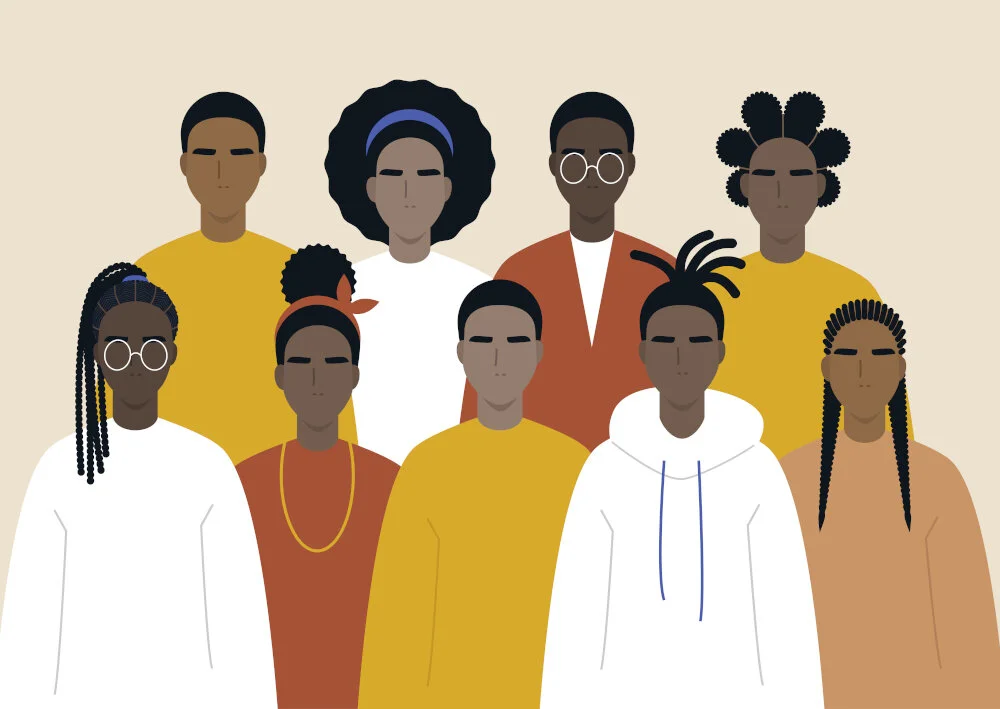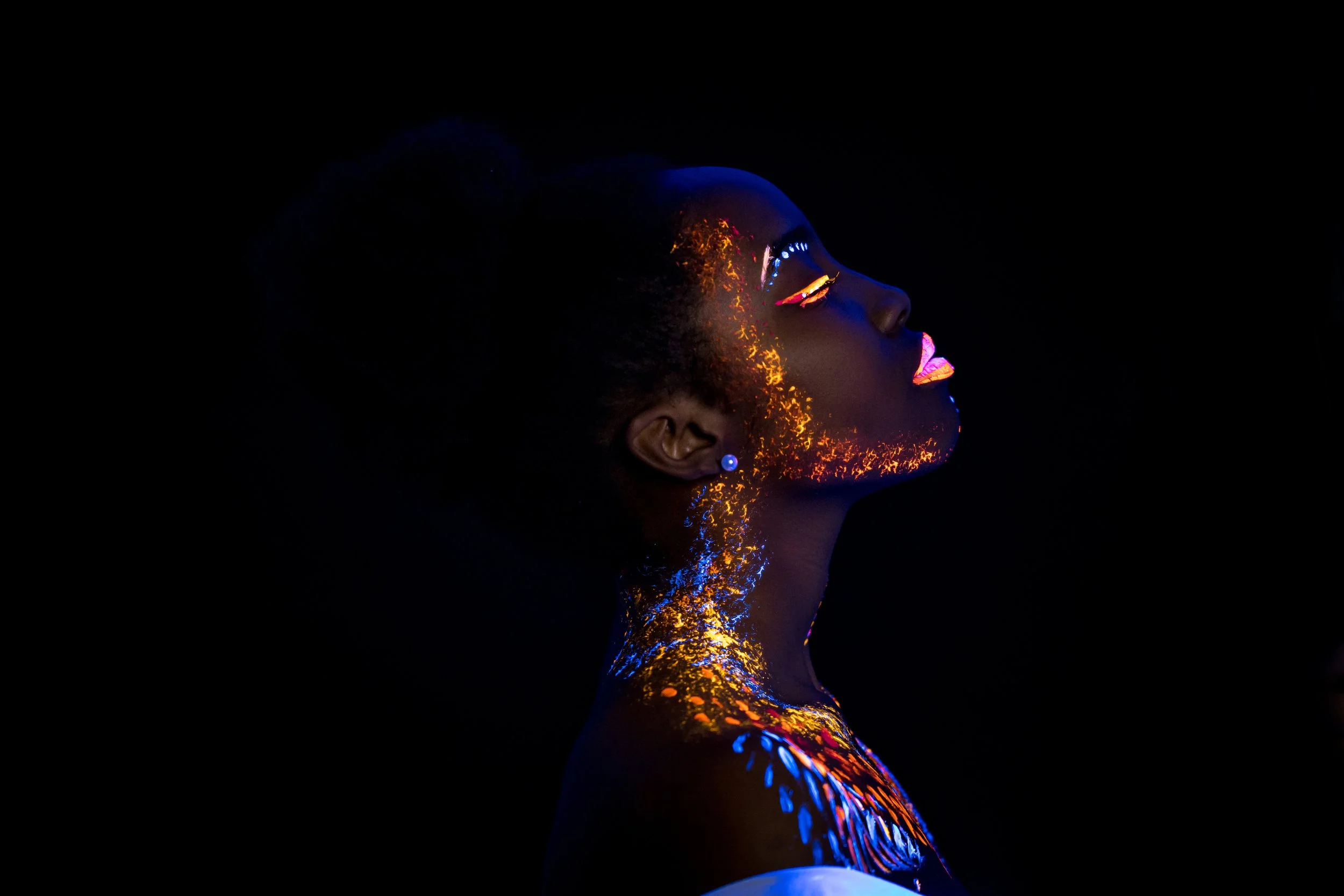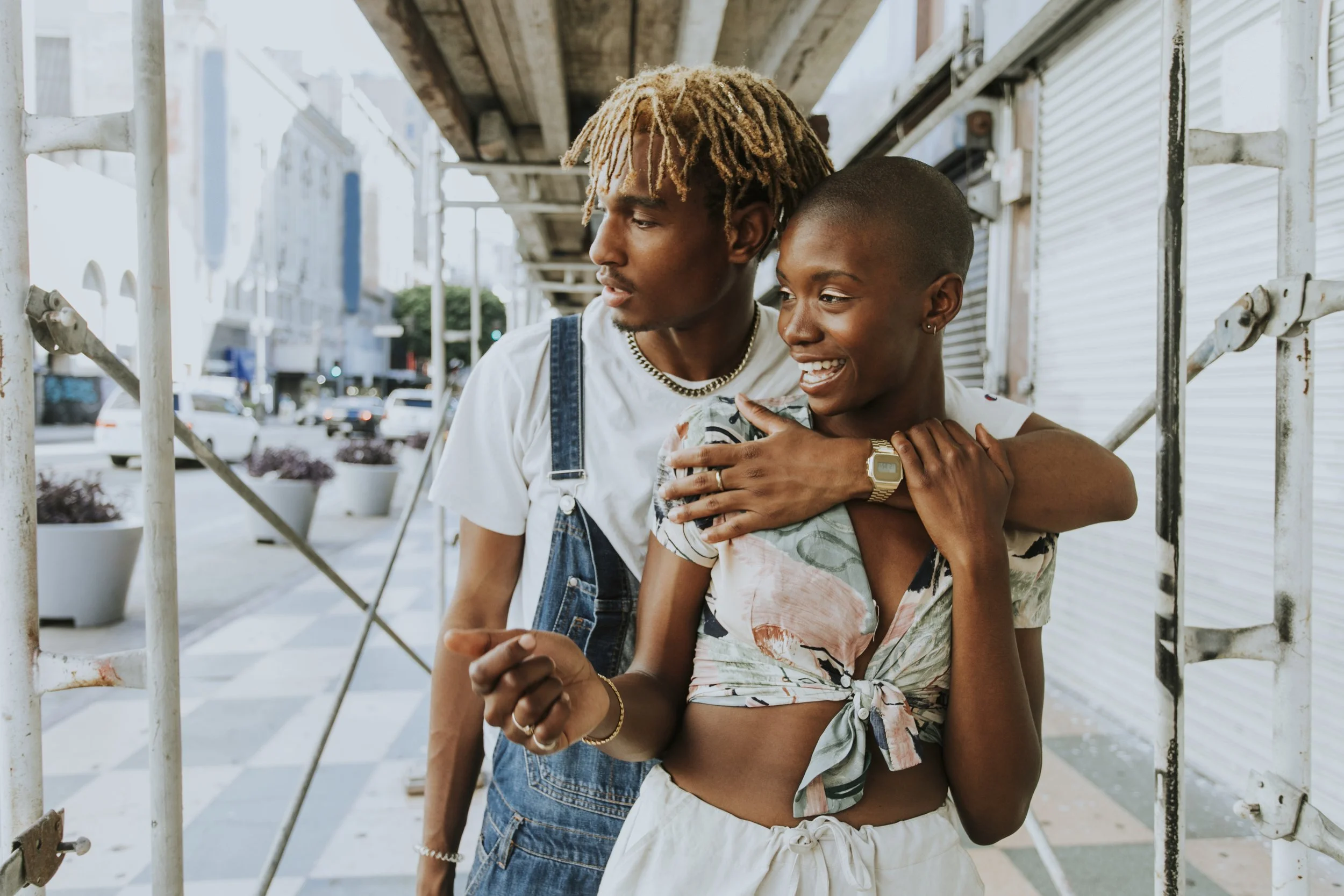Cultural Preservation is Sustainability
by Seren Sensei
‘Sustainability’ is a trendy word right now.
As the fashion industry continues to tumble from grace due to overreliance on factories, cheap garments, and excess production, designers have vowed to become more sustainable — from showing ‘conscious collections’ to discussing the environmental effects of fast fashion. And since the racial uprising of 2020, many companies whose bread and butter has been the reaping of Black American cultural aesthetics — from gold chains and hoop earrings to iconic activists, artists, academics, sports, music and other entertainment references — have also made sorrowful promises to do more for the actual Black communities they take from.
It is jarring to witness these promises to become more sustainable made against a backdrop of cultural insensitivity and unsustainability. We rarely take into consideration the idea of ‘sustainability’ as something that can be applied to culture, yet now, more than ever, the constant barrage of attacks chip away at Black American culture in all its many forms, wearing away like a stone that water beats upon. Cultural preservation and cultural sustainability must become a much more prevalent topic in discussions around sustainability.
What does cultural sustainability look like? Sustainable is defined as able to be ‘maintained, upheld, or defended.’ We ordinarily picture sustainable as organic cotton, recyclables and renewable resources, and other ethically sourced materials… so the question, naturally, becomes: what are ethically sourced materials? When culture is harvested from tweets and Tik Toks, viral videos and memes, then embroidered on a cotton t-shirt – consciously, of course… is it ethically sourced? Is it sustainable?
“Does using sustainable materials mean you don’t have to give credit to things or communities? ”
An alarm has been raised, and rightfully so, about climate change. I often similarly wonder about our current cultural climate, where cultural smudging is common, borrowing Black American aesthetics, culture, and history, and lending them to a credit-less, source-less Internet and meme culture. This is destruction in and of itself, and it is unsustainable. Will all brands end up a jumbled assortment of vacant references to things that already exist, ‘Bye Felicia’ for soccer moms who don’t know where the phrase came from, only that it looks great on the locally-fired small batch mugs they drink their sustainably harvested coffee out of? Or an endless scroll of disembodied quotes, King, Ali, Morrison, Hurston, hooks, Fanon, Baldwin, Wilson, trotted out at the ready for convenience, and sandwiched in between upcycled denim and ethically harvested diamonds? Does using sustainable materials mean you don’t have to give credit to things or communities? There is no sustainability without cultural preservation.
Many sustainable practices are in and of themselves linked to culture and circumstance. Nikki Giovanni has been quoted as saying, “Style has a profound meaning to Black Americans. If we can’t drive, we will invent walks and the world will envy the dexterity of our feet. If we can’t have ham, we will boil chitterlings; if we are given rotten peaches, we will make cobblers; if given scraps we will make quilts… We prove the human spirit will prevail. We will take what we have to make what we need.” Our culture is, by design, sustainable, because it always had to be: squeezing the most we can get out of limited resources, reducing our waste by thoughtfully consuming whatever we can, recycling and re-using because we don’t know when the next thing is coming. Yet our culture is also constantly changing, as we are eternally scooped into, dipped out of, treated not as a fossil fuel, but an eternally renewable resource.
How do we preserve culture without commodifying it? This is a question of anthropology, a field of study that has historically been tilted towards a white colonists view of culture; with research methods that set up non-white, non-European culture as ‘other’ and oftentimes as ‘dead,’ with stolen cultural artifacts on display. Parallel to this is the treatment of ‘othered’ living culture, especially Black American contemporary culture, which remains up for grabs almost as soon as it is born. How do we give credit in terms of cultural sustainability and what it looks like? Where do we want to go and what do we want to preserve in terms of cultural creation? What are the sustainable legacies that we are leaving behind when it comes to culture, ethnicity, history and heritage?
Sustainability is necessary for survival, be it the survival of our physical planet and natural environment or that of our cultural societies. Otherwise when the well runs dry, as it eventually must, the results will be cataclysmic. For Black Americans specifically, we have not yet been stamped out, and we refuse to be. I wish for us to own the multifaceted nature of our ethnicity, cultivating and preserving our various subcultures for the future, so they can continue on through time as a lineage of sustainability. Let us lead by example as a new generation comes of age in a time where we are beginning to have conversations about the effects of our actions on the planet and each other.
ABOUT THE AUTHOR
Seren Sensei is a cultural critic, filmmaker, writer, and artist. Her cultural criticism has been printed in such publications as Riot Material, The Crisis Mag, and NYLON, and referenced in Jacobin Mag, Vulture, Complex, Newsweek, AJ+, People, Netflix, Vice, and more. In 2015, she released her first book, entitled “So, About That... A Year of Contemporary Essays on Race and Pop Culture;” in 2020, Seren was named an Indie Memphis Black Filmmaker Resident for her screenplay, ‘KITT.’ She was also named a 2020 “Time, Space, Money” HRLA (human resources Los Angeles) Resident. Specializing in race, culture, and sociopolitical theory, she facilitates an active community of over 43,000 subscribers and 7 million views on her YouTube channel, where she has released two seasons of the documentary web series ‘The [Black] Americans,’ dedicated to archiving and exploring the cultural narratives of Black Americans — Descendants of American Chattel Slavery. You can find her YouTube channel here.













